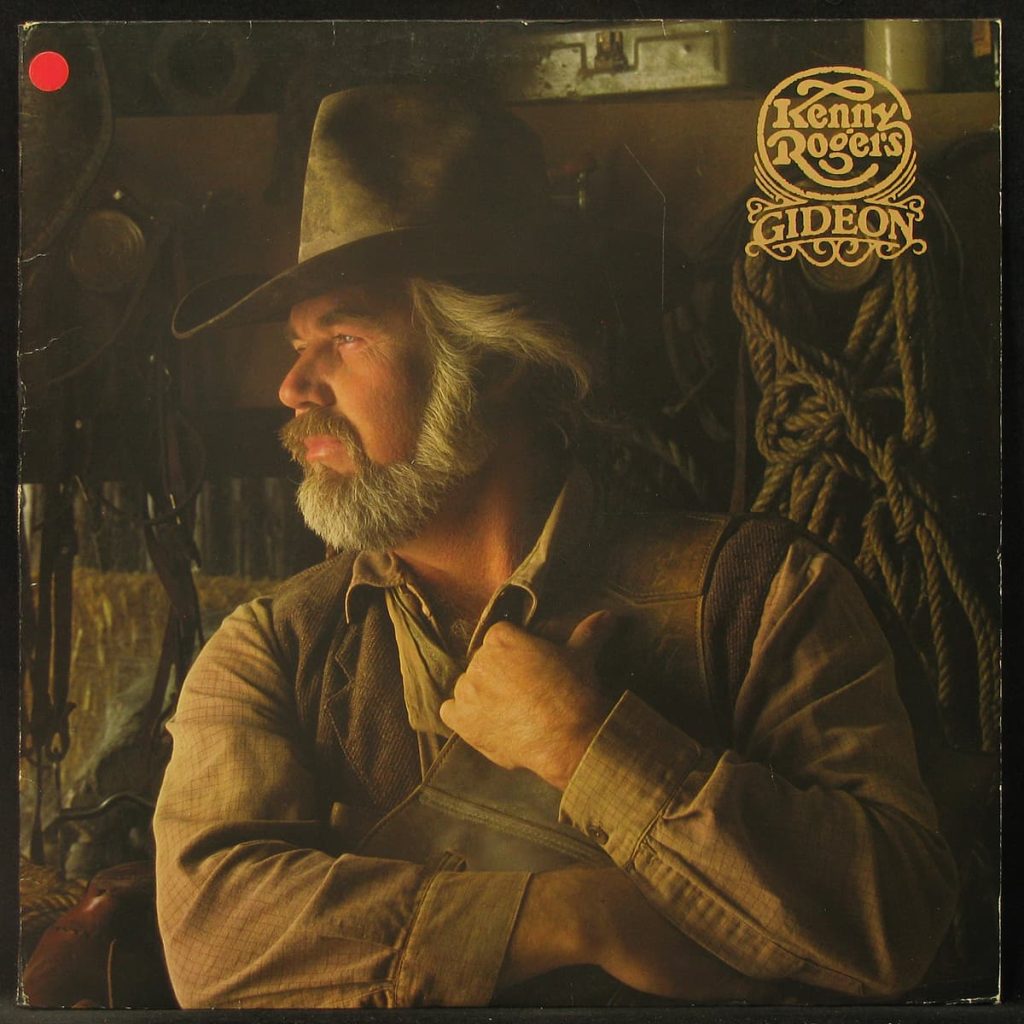
A Drifter’s Plea: The Unspoken Story of a Man’s Desperation and a Woman’s Weariness
Kenny Rogers‘ iconic country ballad, “Lucille”, swept across the airwaves and into the hearts of millions, becoming a massive crossover hit that propelled him into global superstardom. It claimed the coveted number 1 spot on the Billboard Hot Country Singles chart in April 1977 and impressively crossed over to peak at number 5 on the Billboard Hot 100, proving its immense appeal beyond traditional country audiences. This wasn’t just a song; it was a vivid, narrative masterpiece that established Rogers as the quintessential storyteller in music, capable of conveying an entire drama within a few short verses. It won him a Grammy Award for Best Male Country Vocal Performance, solidifying his legendary status and making “Lucille” an indelible part of the soundtrack of the late 1970s.
The story behind “Lucille” is as compelling as the song itself, a creation of the skilled songwriting duo Roger Bowling and Hal Bynum. While the authors penned the narrative, Kenny Rogers‘ interpretation brought it to life with such raw authenticity that it felt deeply personal. The song unfolds as a dramatic encounter in a Louisiana bar, where the protagonist, a weary drifter, witnesses a heated argument between a man and his wife, Lucille. The husband’s bitter lament — “You picked a fine time to leave me, Lucille” — sets the stage for a narrative steeped in heartbreak, betrayal, and the harsh realities of a crumbling marriage. The lyrics meticulously paint a picture of a woman driven to desperation, leaving behind a life of toil and a man who seemingly can’t understand her profound weariness. It’s a snapshot of a moment so real, so universally understood in its pain, that it transcends mere fiction.
The meaning of “Lucille” delves into themes of desperation, marital strife, and the quiet despair of a woman pushed to her breaking point. While the observer narrator is the drifter, the song truly centers on Lucille’s implied struggle and her husband’s bewildered anguish. It’s a poignant exploration of how unspoken resentments and the grinding realities of life can erode even the strongest bonds, leading to a pivotal moment of departure. The husband’s lament isn’t just about her leaving him, but about the timing – “You picked a fine time to leave me, Lucille, with four hungry children and crops in the field” – highlighting his immediate concerns but perhaps missing the deeper reasons for her departure. The song subtly hints at Lucille’s untold story, her desperation, and the profound weariness that finally drove her away, leaving the listener to ponder the untold narrative of her silent suffering. It’s a narrative that speaks to the complexities of relationships, where one person’s breaking point might be another’s unexpected tragedy.
Kenny Rogers‘ vocal performance on “Lucille” is nothing short of iconic. His gruff yet tender baritone, capable of conveying both vulnerability and a commanding presence, perfectly embodies the drifter-observer. He doesn’t just sing the story; he narrates it, building the tension and emotion with every line. The arrangement, typical of Rogers‘ polished country-pop sound of the era, features a blend of traditional country instrumentation with lush strings, creating a cinematic backdrop for the drama. It was the lead single from his album “Kenny Rogers” and its phenomenal success helped solidify his image as “The Gambler,” a master of compelling musical tales. His ability to deliver a story with such conviction, drawing listeners into the lives of his characters, became his trademark, and “Lucille” was arguably the song that cemented this reputation for a global audience.
Listening to “Lucille” today evokes a powerful wave of nostalgia for a golden age of country music, when songs told intricate stories that resonated deeply with the human condition. It transports us back to a time when Kenny Rogers‘ voice was a ubiquitous presence on the radio, his narrative ballads providing comfort and insight. For those of us who remember its climb to the top, “Lucille” remains a vivid, emotionally charged journey into the heart of a broken home, a timeless testament to Rogers‘ unparalleled ability to weave a dramatic tale that, even after all these years, leaves us wondering about Lucille’s fate and the reasons for her desperate flight. It’s a song that proves the most powerful stories often hint at more than they explicitly tell.